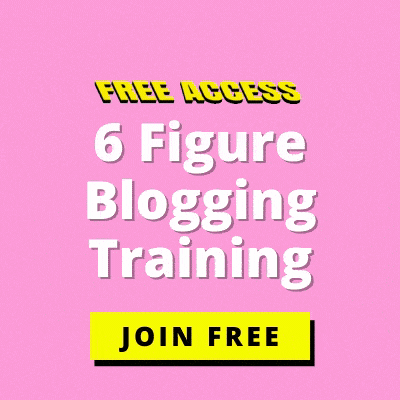Have things not really gone according to plan and your debt has gotten a little out of control?
You have decided to tackle your debt problem, but are not sure where to start?
You are in good hands. I’m here to give you guidance on how to begin taking control of your debt and unburdening yourself from the strains of financial stress.
Read below for 11 tips to get started on your debt management.
Table of Contents
1. Make a Budget
You need to take control of your finances and the first step to do so is by making a budget that is realistic and easy to follow.
The most important point I want to make here is the fact that you must write it down black on white on a physical piece of paper or in a spreadsheet on your computer and maybe even print it out and hang it up.
You could even grab a copy of our Printable $5 Budgeting Binder to help organize your budget if you work better on paper.
A budget will help you get a clear picture of what you have to work with. What are your fixed expenses? What can you afford to put towards your debt? And where do you need to make major improvements to your money managing.
If you are new to the concept of budget creation and get paid bi-weekly, check out how to budget when you get paid bi-weekly. It gives you a step-by-step guide on how to start budgeting and taking control of your bill payment schedule.
2. Overspent vs. Broke
Ask yourself the question: what am I spending my money on? Is it non-essential items and luxuries that leave you scrambling to make your bill payments? Or is it truly a shortage of funds every month that keeps you gasping for air?
If you are merely overspending, you need to accept what you are doing is hurting your financial present and future and you need to make changes to cut those frivolous spending habits.
If you are truly broke, you have to take a look at your fixed and non-fixed expenses and make some tough decisions on how to cut those expenses to free up a little more money to pay off that debt.
3. Make a Plan
Paying off your debt needs a plan, a strategy that keeps you on track and that gives you a direction and focal point.
Decide which debt you want to pay off first, if you have multiple credit cards plus lines of credit.
Make a list of all your debts and note how much interest rate percentage each is charging you per month.
It is up to you if you want to pay off the smallest debt first and then tackle the bigger one (which is known as the debt snowball) or if you want to pay it off based in interest rate percentage (which is known as the debt avalanche).
But the main goal is to pay one off as quickly as possible, making bigger payments than just the minimum, while keep making minimum payments on your other credit cards/line.
This means you will have to find ways in freeing up money that is currently tied up in expenses that can be cut.
4. Avoid Further Debt
As Hollywood as this may sound, but sit yourself down at your kitchen table and cut up your credit cards.
Do not apply for any new loans and do not accept any free credit cards the bank offers you.
It is imperative that you stop accumulating debt. All your efforts to get out of debt by making a budget and a plan will be for nothing, if you keep losing sight of how much you owe.
I felt like I was losing sight over my spending just prior to the holidays and decided to stop using my credit card for a month and monitor my bank account. It was then very easy to make the necessary payments to bring my credit card balance down to $0.
I had to make a few tough decisions, but in the end it was worth not having to stress losing sight of my credit card balance anymore.
You need to learn to live on your income, budghttps://www.sixfiguresideincome.com/benefits-of-budgeting/ and avoid putting any more strain on your finances.
5. Cut Expenses
If you are really serious about getting out of debt, then it is time for a lifestyle change. It is time to find ways to be more frugal and decisive about your money spending.
Review your spending habits and your purchases you make and ask yourself, if that item or other was really necessary.
If you have internet and cable, ask yourself if you could do without cable service and start watching your shows online through the channel’s website.
It is remarkable how much cable companies charge just for the basic cable package. The last time I checked out their “deals”, nothing was less than $100. That is $100 you could easily put towards your debt.
If you need more tips on how to start a more frugal lifestyle, take a look at How to live happily on less, it will give you a good foundation on what you can cut out of your daily expenses and free up money to pay down your debt.
6. Ask for a Lower Interest Rate
A friend told me a story about someone she knew, who raked up a lot of debt on her credit card.
This young woman called the credit card company and was able to convince them the lower the lump sum she had to pay back, based on the fact that she was just a lowly college student.
Now, I’m not sure how much of a success rate this approach has or how much of the story is actually true, but calling your credit card company and asking them for a lower interest rate never hurts.
With a good payment history and a good credit score you might have greater chances in being able to come to an agreement.
If the credit card company will not lower your interest rate, there is the option of transferring your debt to a credit card or credit line with a lower interest rate percentage.
Or maybe the bank has a promotion on one of their credit card products with a 0% interest rate fee for a certain amount of months. You can certainly take advantage of those.
Almost a year ago I came to the realization that with the interest rate I was paying on top of my student loan I barely made a dent in my overall loan. It was frustrating and the loan company was less than cooperative to help out.
At the same time there was a great promotion going on at my bank and I made the decision to transfer my debt. It was a scary thing to do, because I was handling a lot of debt at once and didn’t want to make any mistakes.
In the end it was the best decision regarding my student loan I could have made, because between May and December of last year I was able to pay off $12,000.
Do some research on what is available and what might work for you, it might end up helping you out more than you can imagine.
7. Avoid Late Fees
Credit card companies love to charge late fees, penalty fees and any other kind of fee they can dream up in order to keep you paying while not making much progress in lowering your debt.
Make sure you pay your bill on time to avoid those awful fees and penalties, because they can very quickly and easily bring you back up to a debt amount you worked so hard to lower a few months ago.
I had a credit card that had the late fee and penalty fee plus the extended punishment of carrying over a penalty fee.
In order to make this fee go away I had to pay off the entire amount I owed or keep bleeding money. It is a sure way for the banks to make a lot of money.
8. Increase your Income
By increasing your income you will be able to ditch those credit cards to buy things like groceries and gas and you will be able to pay off your debt.
I know this is easier said than done, but a sacrifice like taking more shifts at work or getting a second job, selling some of your belongings or starting a side business will help you tremendously in the long run by freeing you from your debt.
Think about it. Right now you live within the clutches of your creditors, but with a little bit more elbow grease you will soon be able to live without having to worry about debt collectors calling you.
You can make a side income through walking dogs, or refinishing furniture, or any of these work from home ideas!
9. Credit Counselling
If things get too dire or you have the feeling they are beyond your grasp of managing, try talking to a credit counselling service.
They can look at your financial situation and help you make a realistic budget with monthly payments towards your debt.
The counselor can also negotiate a debt management plan with your creditors. What that means is you make monthly payments to your credit counselor, who in turn make smaller payments to your creditors on your behalf.
10. Baby Steps
Being in a dire financial situation can be extremely stressful and overwhelming when you first start making a plan of attack to get you out of your debt.
Anxiety rolls in and you feel it might be best to just ignore it. Do not despair.
After you have taken a good realistic look at what you are dealing with, concentrate on one debt at a time (by still making minimum payments to the others, of course).
Nothing changes overnight and sadly miracles come by rather seldom, so push up those sleeves and tackle one chunk of debt at a time.
11. Avoid the Blame Game
Solutions never came from finding blame or accusing others. I know, in the heat of the moment when the stress seems too much to handle, it may feel good to point the finger at someone else, because it makes you feel like it wasn’t all your fault.
Shuffling blame is distracting and can cause a lot of damage to relationships. Your fault or not, the point is that this is a problem that needs solving, because time is literally money in your case.
Life happens. You are not always in control of what is done to you, but it is your responsibility on how you handle it.
You must be rational, logical and informed on how to proceed, being overly emotional will not get you very far in this case.
Final Thoughts
I know that the prospect of starting your debt management can seem utterly overwhelming and hopeless. But there are many ways to get you started and to help you along the way.
The tips I have listed above are a great tool to begin taking control of your financial situation again. Take a deep breath. The first step is always the hardest, but once you get started you will soon see that it is possible.
Save It To Pinterest!




Leave a Reply